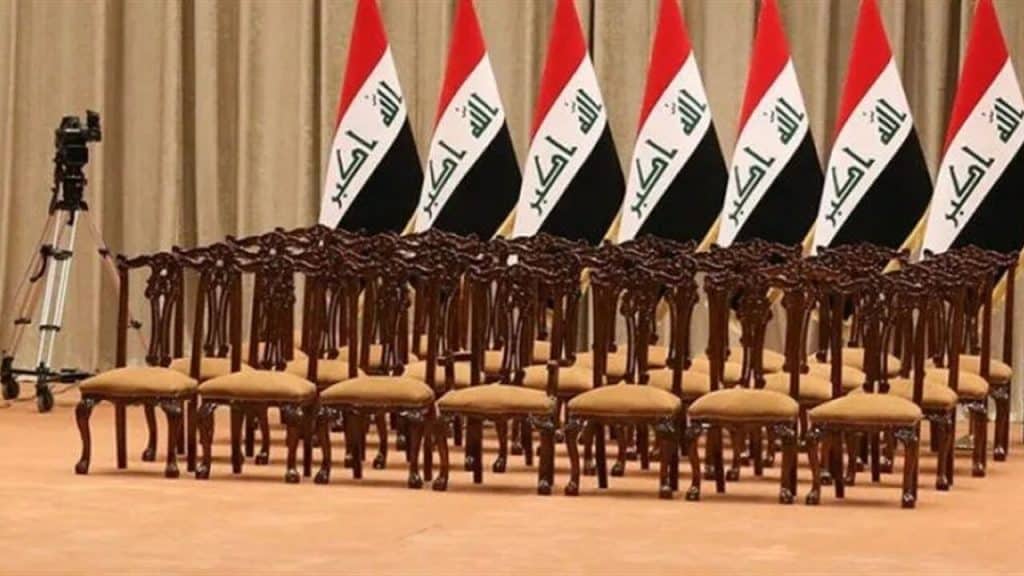Iraq’s new political landscape: Will Sudani’s premiership continue?
Al-Sumaria News wrote in a note about the future of the negotiations for the formation of the new Iraqi government: While the results of the recent elections have marked a new political alignment in Baghdad, Iraqi political forces have begun early negotiations to form the future government.
According to political sources, the upcoming atmosphere is not free from complexity, and the process of negotiations requires a high level of flexibility and understanding between the victorious groups in order to prevent the recurrence of long-term crises in the formation of the cabinet.
Despite the official end of the elections, the consequences and discussions surrounding them continue to cast a shadow on the political atmosphere, and the most important issue of attention now is the mechanism for appointing the prime minister and forming the new government. It had long been clear that the main competition is between two axes: the axis supporting “Mohammad Shia Al-Sudani” to obtain a second term as prime minister, and the axis of “Nouri Al-Maliki”, which opposes any extension for Al-Sudani. This situation is reminiscent of the tensions after the 2021 elections, when the Sadrist movement’s attempt to form a so-called “majority” government failed due to the opposition of the Iraqi Shiite Coordination Framework coalition.
A complete agreement among the Coordination Framework forces on the prime minister is essential
According to the initial results, Al-Sudani won the most seats, with his number of representatives reaching more than 45. However, the experience of previous years shows that simply holding the most seats is not a guarantee of electing the prime minister. In the last elections, Al-Sudani’s movement, with 72 seats, failed to break the established tradition of Iraqi politics; a tradition that emphasizes a complete agreement among the Coordination Framework forces on the prime ministerial candidate.
These facts have reduced expectations that Al-Sudani will succeed in winning a second term, especially since Kurdish and Sunni parties remember the bitter experience of standing up to the Coordination Framework in 2022, and Mohammed Al-Halbousi considers his removal from the parliament speaker a “punitive message” to the coalition with the Sadrist project, and financial pressure on the Kurdistan Region has also been assessed as a similar measure.
A few days before the elections, Qais al-Khazali, the Secretary General of Asaib Ahl al-Haq, emphasized that “the Kurds and Sunnis have learned the lesson of 2022 and the selection of the prime minister must be based on Shiite consensus,” a position that shows that these two axes are not willing to take sides among the Shiite movements. This message directly limited Al-Sudani’s efforts to gain support beyond the framework.
After the results were announced, extensive meetings began between the leaders of the Coordination Framework, including Al-Maliki, Al-Khazali, Al-Mandlawi, and Ammar Al-Hakim; but what was notable was Al-Sudani’s complete absence from these meetings. Even Falih Al-Fayyadh, Al-Sudani’s closest electoral ally, was seen in a separate meeting with Qais al-Khazali, a scene that many have interpreted as a sign of an early attempt to “politically isolate” the current prime minister.
Al-Sudani now faces two options: Rejoin the Coordination Framework and help them choose a new prime minister, or continue on an independent path to gain support for a second term, a path that observers do not see as having much chance of success.
Extending Sudani’s term as prime minister or removing him?
Analysts believe that removing Sudani could start the next government with widespread tensions. On the other hand, if the Coordination Framework wants to reduce the level of criticism and concerns, extending Sudani’s term as prime minister seems a necessary option; an option on which it is not yet clear whether the political coalition will reach a consensus.
Thus, Iraq is on the verge of a decisive stage, a stage in which the decision of the Shiite Coordination Framework coalition will determine the course of the future government and the political stability of the country.

